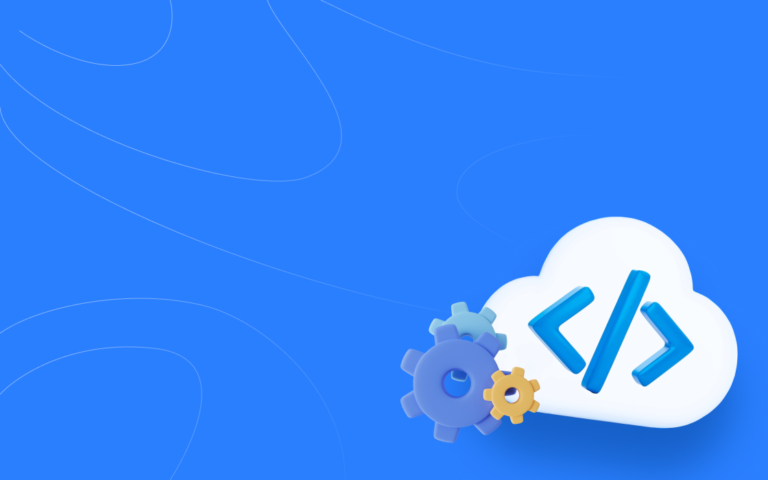Dealing with legacy system cloud migration
An obsolete tech stack means dealing with the legacy app – a mobile application operating on outdated technologies. Almost every business feels its tech stack is evolving since new technologies are keeping entering the market.
It changes the users’ expectations, and competitive dynamics and opens new digital channels to increase the number of users. To scale in a modern environment, businesses need to scale their operations internally, offering impressive experiences externally.
The inability to work with your data properly means outdated or legacy data architecture, which is incapable of satisfying your current business needs. Usually, it triggers the need to turn to Data Migration. However, moving your app to a new tech stack you will always have concerns since the process is not easy.
The ability to maintain the historical data after migration, transfer data to a new management system, move to a new architecture, dealing with the code legacy – all those processes are complex, however, with the right fintech software development company the process will be as smooth as possible.
Old tech stack makes you open to various cyber threats and security breaches. Recovery will be too costly and harmful to your reputation. Loss of your customer’s trust will be the cost of losing your data.
In this era of economic uncertainty, Fintech companies need to stay stable and secure for their customers.
Payment preferences and consumer expectations are now changing at the speed of light. Cloud migration will help your business to always stay relevant and continue to grow.
It is an essential historic move in the digital world and the more proactive your business is, the closer you will be to success.
Get a free consultation
You must update your systems frequently to stay ahead of the trends and provide your customers with the most value.
Contact usDigital transformation cannot work on top of obsolete tech stack
If we consider the impact of legacy systems on the banking and finance industry business, in simple words, it means that critical business processes run on faulty technology infrastructure. It results in the following consequences:
- Fintech industry businesses using old systems spend a lot of money on maintaining outdated services due to a tech stack’s monolithic nature. Thus, any change or update requires time and effort. And as a result, architecture becomes more expensive to manage.
- Unlike modern cloud-based solutions, it is difficult to reorganize the fintech apps built using outdated tech stack, since they are spread across several databases and storage resources.
- Outdated fintech software solutions systems affect the company’s compliance and integration levels. Such apps, for instance, mobile banking apps, become less resistant to security threats.
Why do your fintech apps need tech stack migration?
The signs of aging of your app tech stack:
- Decrease in customer retention rates;
- Security vulnerabilities of old frameworks;
- Lack of scaling;
- Bottlenecks and constraints in the legacy environment affecting financial app performance, agility, and scalability;
- You are not able to cope with increasing raw data volumes generated.
From a technical point of view, the more outdated the tech stack of your mobile banking app is, the bigger will be the technical debt. And the later you delay, the more complicated will be the process of moving your mobile banking app from an obsolete tech stack.
Benefits you get when upgrading the tech stack of fintech mobile apps
Apart from increased scalability, improved performance, and higher customer retention rates, moving your finance app to a modern tech stack will include the following benefits for your business:
Scalable technologies and new abilities
If there is bottleneck somewhere in the obsolete finance app tech stack, it prevents it to be able to handle the sudden increased demand, the performance will suffer and decrease the number of old and new users. A new tech stack allows you to fix and prevent such issues, providing a way for more efficient and successful startup scaling.
Multi-platform support
Outdated fintech solution as a rule were built some time ago and are dependent on a particular platform. Modern mobile solutions can run on various platforms since there are a lot of technologies to choose from.
Better performance
The speed of performance depends on the usage of hardware capabilities. To improve the performance of fintech applications, developers examine the operating system, software UI, and technologies that access hardware components, which allows you to improve the performance of your app.
Better data management
You will make the data management process more efficient by merging your data from several databases into the unified one.
Improved security
Legacy tech stack makes the systems of fintech app vulnerable to cyberattacks and other possible threats. With the new tech stack, you will get an extra layer of security.
Lower maintenance costs
Outdated fintech app demands continuous investments. The new tech stack allows withstanding software inefficiencies and guarantees smooth functioning.
Faster transactions
Cloud migration will enable organizations to leverage real-time payments by improving the speed and consistency of transactions.
Compliance and risks mitigation
Agility, flexibility and lower costs of cloud migration enable to solve major challenges and issues connected to operational risks and financial crime compliance activities.
Your app will be more capable in the future
Legacy fintech app stacks do not correspond to modern requirements which affects the performance and user experience of such apps. Modernization of the app tech stack allows us to avoid these issues ensuring the best performance, interface design, and usability.
Get a free expert consultation
Drop us a line, and and find out how to migrate to the cloud
without disrupting your business
Moving your on-premise app to the cloud
Moving your app to a new tech stack is a complex process with numerous variables, since it may require downtime and a change of app logic. It may result in interruptions in data management. There are a few approaches you can take to move your fintech app to a new tech stack. However, the procedure will be similar in all cases.
As a rule, the data migration process starts with the assessment of the source system. It allows you to assess the current data architecture and align it with the new one. The process finishes with testing the migration design and replicating it to the product build.
- Analyzing the source database. During this stage, you will assess the size of the database and determine the scope of your project. In case the data is has a specific organization, you may need to implement a tool to make sure it will load the data to the target base properly.
- Examine your data quality. Check your data consistency. It will help you to avoid delays, overruns of expenses, and minor failures. It will help you to formulate the right data quality rules to validate the quality of data.
- Convert old database format to the format compatible with a target database. Convert the current database schema into a format, views, objects, and functions to the format supported by a new database.
- Better double-check. Test a small portion of your data, and profile and convert it. Then gradually increase the volumes to build a smooth data migration flow.
The procedure may differ, varying from a vendor to vendor. In Altamira, we utilize the ETL migration, AETL – Analyse – Extract – Transform – Load data migration process. It enables us to properly plan the data migration process to the smallest details and successfully execute the data migration procedure.
Efficient strategies and best practices
Since every case is unique, exists no single strategy to migrate your data to the cloud. Each asset is unique in terms of cost, performance, and complexity. While choosing the best strategy for migrating your data, you may consider 6 major cloud migration strategies and choose the best suitable option. Here are the three most popular ones – rehosting, platform, and code refactoring.
Rehosting
Rehosting is one of the simplest ways of moving your app to the cloud. It presupposes the process of migration without code changes.
One of the most widespread scenarios is using the Lift and Shift model. It presupposes moving the app and existing data from the on-premises data center to the cloud without redesigning it. The infrastructure remains the same. The model is adopted mainly for large-scale migrations. It will be the best option, in case you have a tight deadline to migrate your app.
Replatform
Replatform strategy is very simple to rehosting, however, presupposes app modifications to benefit from new infrastructure. It may for instance be changing the way in which the app interacts with the database (automation). Or enabling better scaling by using the resources from the new cloud environment with minimal code modifications.
This approach enables to leverage of many cloud capabilities, including IaC (infrastructure as a service), data processing services, autoscaling, etc.
Code refactoring
Refactoring the legacy code is almost synonymous with code rewriting, the only nuance is that this way of dealing with the legacy code presupposes restructuring and rewriting the codebase.
It is more complex than the two previous approaches and needs careful testing. It is also one of the most time- and resource-consuming options. However, the benefits overreach the struggles, providing a high return on investment.
Code refactoring means changing the internal code structure without influencing the external app behavior. It makes the code clear and easier to update. The huge benefit of choosing code refactoring is that it allows moving forward with the deployment process.
The huge plus of refactoring for startups is that it allows easier clean-up of separate parts of a code, with no need to rewrite the whole code.
Re-Architect the Legacy Monolithic Applications
Adopting DevOps app development practices and using the microservices model it is possible to rearchitect your monolithic fintech app. Since you will re-build a fintech app using microservices architecture, you will be able to build and maintain each service individually.
It will boost your app agility, allow easier control over functions, and improve user experience.
Cloud computing – the transition of the on-premises fintech app into the cloud-based environment. It consists of cloud structures that include public, private, and hybrid cloud networks.
Containers – apps, and workloads can be packaged and deployed using containers. There are many benefits of using containers in cloud architecture, for instance, used in multi-cloud or hybrid systems.
Serverless – a cloud computing approach that allows software development companies to construct and run apps without managing servers. Servers are abstract from app development. The Cloud provider is responsible for maintaining and scaling of cloud infrastructure.
APIs – they connect data providing wider abilities. APIs allow separating essential data and services from the underlying system complexity.
Artificial intelligence and machine learning – Machine learning technologies assist in the creation of compelling narratives from complex datasets in your business.
Technological challenges and nuances that should be taken into account
Moving your app to a new tech stack is a complex process and here are a few criteria that should be met to ensure success:
Security risks
For instance, the app which is going to be migrated requires PCI Data Security Standard (PCI DSS) compliance, and it may not be available in the current environment. However, the transformation of the app may cause it will no longer be able to be constrained in the PCI DSS environment. Thus a vendor responsible for tech stack migration will need to plan the roadmap to choosing the right time to perform the migration.
Performance
The migration to the new tech stack may also affect the performance of the app. Thus is it necessary to start the migration once the new environment is integrated with the rest of the client’s current environment.
Also, it is important to choose the right deployment strategy and make sure that the migration process will not affect the app performance.
Compliance of the two tech stacks
If the current tech stack and future tech stack of the financial app are similar, it is necessary to choose a suitable time to start the migration to minimize the app downtime.
In the case the new tech stack differs from the future tech stack, it is necessary to evaluate the functional equivalence between the current app and ensure the client’s functional requirements are met. It may entail customization and migration of data.
Your software development partner for fintech application development
When it comes to the fintech application development process or finding the right fintech software development team able to assist in data migration of fintech apps you need to take a serious approach.
As is often the case, startups have limited budgeting and wise distribution of costs is one of the key factors which sill support sustainable growth and successful scaling of your fintech software.
Altamira team is an expert in custom financial software development services, banking, trading, and payment solutions. For over a decade we have been building fintech apps, gaining practical expertise, and dealing with different customers, a big part of which was scaling startups.
The value of our app is that we deliver the highest quality of code, which guarantees great performance, quick refactoring, and successful migration in case of necessity.
Our team not only will build the solution from scratch, launching MVP, but also will help to upgrade and modernize your app, moving it from the obsolete technology stack and providing professional data migration support.
Services we offer:
- Web and mobile app development
- Data solutions services
- Dedicated specialists to supplement your existing team
- Developing an app from scratch and upgrading the existing app tech stack.
Why choose us as a reliable technology partner:
- We provide our clients with security and secure data exchange capabilities;
- Assist in processing of big data, including data visualization, data modeling, data migrations, etc.
- Help in structuring and storing your data using blockchain technologies;
- Assist in tracking and management of major business processes underlying major risks
- Cloud based fintech app development that allow to shift the responsibility of diagnosis, management and bug fixing to a vendor;
- Efficient management, dealing with legacy code;
- Successful integration of API’s for providing better customer and business partners experience;
- Building AI/ML powered systems.
To sum up
FAQ
When the complexity of your system interferes with the workflow it’s time to examine arcirecture. It will be necessary to assess the security gaps, upgrade the project roadmap, pick the best solutions to preserve the architecture harmony. You need to keep an eye on data insights – it will slow down digital leverage.
Since each asset that should be migrated is unique in terms of costs, performance and complexity, there is no one plan for cloud migration. You need to prepare the roadmap, that will serve as an instrument helping to properly render move all the components.
The choice of the strategy depends on individual case and tech specificities of your current application. One of the biggest challenges while choosing the strategy to migrate your data is understanding the new environment and the specifities of its operation after you will move your data there.
Not each data migration is the same. Solid planning, good communication and careful strategy will help to streamline the migration project.






